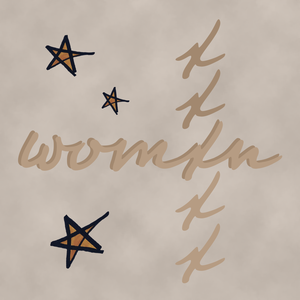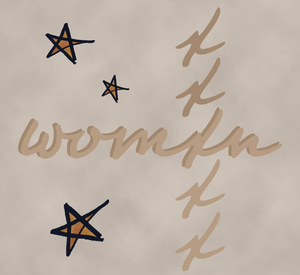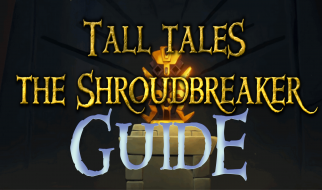
Maybe you?ve heard it mentioned by a friend or have seen it used in a headline somewhere. You may have thought that it was a typo or wondered what it meant. That?s right; I?m talking about the word womxn.
Womxn is a replacement of woma/en that challenges the notion of identities being derived from the masculine counterparts.
In the , the word ?womyn? started gaining popularity amongst second wave feminists as a way to separate from the term ?man.? It has however been criticized for being used by TERFs and only focusing on those who are white and cisgender.
In late 2016, Womxn?s March Seattle took its name using the x, becoming a beacon for inclusivity. Around the same time, award-winning poet, Koleka Putuma, published with the first poem titled, ?Growing Up Black and a Womxn.?
As this term increasingly becomes apart of our language, it may feel intimidating if it?s something you may not know much about or have even heard for the first time. Below are some questions to answer as we begin incorporating ?womxn? into our daily vocabulary?
So why the x?
Replacing the y with the x means including trans womxn, womxn of color, and nonbinary folx.
Assistant Linguistics professor at UC Santa Barbara, Lal Zimman, that ?x? has been historically used to replace a letter in what they call a ?stand-in mark.? By placing the x into the word, a more inclusive range of identities are taken into account.
Likewise, some relate ?womxn? to the term Latinx, which is commonly used as a non-gendered way for those with Latin American descent to identify as.
Nahje Royster , who is a student activist, writer, and podcast host for Revolution Radio , first heard of the term on social media and at LGBTQIA+ centered spaces a couple of years ago. She says,
I think the ?x? creates a space for women and femme folks that aren?t cis women. Meaning it tells people the ALL women-identifying people are being included and addressed. Especially in activist spaces that are aligning with white feminists and/or TERF ideology. However, there are folks that don?t like it as well and that?s okay too. The end goal is to get society into a place where inclusivity is the norm and exclusivity is the problem.
It is important to note that, like Royster said, not every single person prefers to use the x. What matters most is that we take into consideration each person?s own preferences and respect the ways in which they choose to identify.
After knowing more about the x, you still may be wondering,
How do I pronounce womxn?
By being still new to the mainstream, there is not one particular pronunciation of this word. Most pronounce it like they are saying woman or women, but spell the singular and plural with the x. However, this raises the question if that actually is truly inclusive; members of the blind community may be left out if there is no audible way for them to hear this distinction.
Others prefer to say it as wom-inx or woma/en-x, or wom-ux. These ways can bring attention to womxn when talking verbally to someone about and opens up more dialogue about linguistics.
While it could be helpful to come to a consensus on the official pronunciation, even just talking about the x and using it on different formats keeps the conversation going and allows more people to become aware of it. Which leads into our next question,
What can I do to promote the use of ?womxn??
At first, it can feel out of place to restructure a word that many of us have been taught to use. But what led us here is that we often accept commonly used words without questioning the meanings behind them.
A good place to start incorporating womxn into your everyday talk is by having a conversation with others if they have ever felt that woman or women are exclusive. Ask each other if they have ever questioned using this term without thinking back on how it has historically been used. You can also start by educating a friend or family member about the use and why it is important.
While it may seem small, putting out ?womxn? on social media is also a big step into helping. If someone is unaware why you have used an x, they may ask which gives you a chance to tell them about intersectional feminist vocabulary, or they may do their own search of the word that they discovered about from you.
You still may be asked questions such as, why is this important? There are many answers to this, but mainly it is because language is an important part in how we talk about identities and are truly intersectional. Intersectional feminism means challenging the norms in our society that aren?t representative of us all. While it is just a first step in making change, saying ?womxn? can be the place to begin.
Originally published at https://www.makemuse.online on August 1, 2019.


